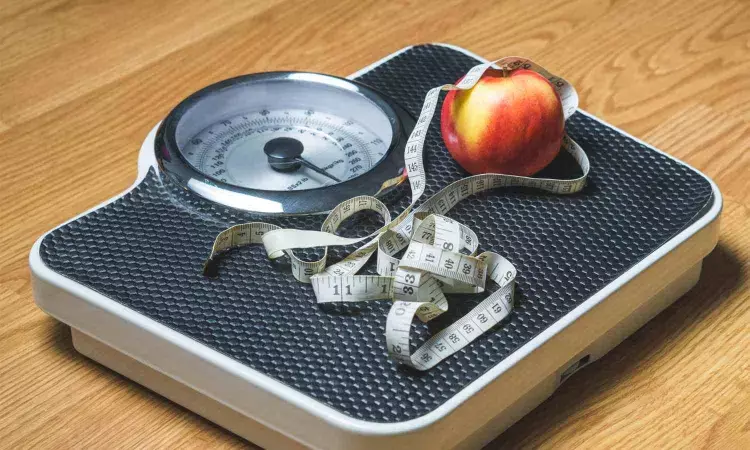- Home
- Medical news & Guidelines
- Anesthesiology
- Cardiology and CTVS
- Critical Care
- Dentistry
- Dermatology
- Diabetes and Endocrinology
- ENT
- Gastroenterology
- Medicine
- Nephrology
- Neurology
- Obstretics-Gynaecology
- Oncology
- Ophthalmology
- Orthopaedics
- Pediatrics-Neonatology
- Psychiatry
- Pulmonology
- Radiology
- Surgery
- Urology
- Laboratory Medicine
- Diet
- Nursing
- Paramedical
- Physiotherapy
- Health news
- Fact Check
- Bone Health Fact Check
- Brain Health Fact Check
- Cancer Related Fact Check
- Child Care Fact Check
- Dental and oral health fact check
- Diabetes and metabolic health fact check
- Diet and Nutrition Fact Check
- Eye and ENT Care Fact Check
- Fitness fact check
- Gut health fact check
- Heart health fact check
- Kidney health fact check
- Medical education fact check
- Men's health fact check
- Respiratory fact check
- Skin and hair care fact check
- Vaccine and Immunization fact check
- Women's health fact check
- AYUSH
- State News
- Andaman and Nicobar Islands
- Andhra Pradesh
- Arunachal Pradesh
- Assam
- Bihar
- Chandigarh
- Chattisgarh
- Dadra and Nagar Haveli
- Daman and Diu
- Delhi
- Goa
- Gujarat
- Haryana
- Himachal Pradesh
- Jammu & Kashmir
- Jharkhand
- Karnataka
- Kerala
- Ladakh
- Lakshadweep
- Madhya Pradesh
- Maharashtra
- Manipur
- Meghalaya
- Mizoram
- Nagaland
- Odisha
- Puducherry
- Punjab
- Rajasthan
- Sikkim
- Tamil Nadu
- Telangana
- Tripura
- Uttar Pradesh
- Uttrakhand
- West Bengal
- Medical Education
- Industry
For weight loss calorie restriction more important than Time-restricted eating, claims Study

A randomized controlled trial comprised of adults with obesity and prediabetes found that both time-restricted eating and a usual eating pattern resulted in weight loss when calories were held constant in both groups. It did not seem to matter whether participants consumed most of their calories early in the day or in the evening, suggesting that overall calories may be more important than meal timing when it comes to weight loss. The findings were presented at the inaugural scientific plenary session "New in Annals of Internal Medicine: Hear it First from the Authors" held at the Boston Convention and Exhibition Center during the American College of Physician’s (ACP) Internal Medicine Meeting 2024. The paper also is published in Annals of Internal Medicine.
Time-restricted eating (TRE) is a diet approach where patients limit their eating to a window of time during the day and then fast for the remaining hours. During the eating window, patients are not required to count calories or monitor food intake and during the fasting window, patients are limited to water and calorie-free beverages. Evidence shows that when adults with obesity limit their eating window to 4 to 10 hours, they naturally reduce caloric intake by approximately 200-550 calories per day and lose weight over 2-12 months. Whether TRE induces weight loss independent of reductions in calorie intake, as seen in rodent studies, is unknown.
Researchers from Johns Hopkins University randomly assigned 41 adults with obesity and prediabetes to either TRE with a 10-hour eating window or a regular eating pattern for 12 weeks (about 3 months) to compare weight loss and other measures of metabolic health. At the beginning of the study, the researchers assessed participants’ history and activity level to estimate baseline caloric needs, and participants ate the same number of calories daily throughout the study. Participants in both arms received prepared meals with identical macronutrient and micronutrient compositions and instructions on when to consume the meals. The time restricted eating group was instructed to eat only between the hours of 8am to 6pm and consumed most of their calories before 1pm each day. The usual eating pattern group ate between 8am and midnight and consumed most of their calories after 5pm each day. After 12 weeks, both groups lost about the same amount of weight and there were no real differences in fasting glucose, waist circumference, blood pressure, or lipid levels. According to the authors, these findings suggest that if or when TRE interventions induce weight loss, it is likely in part due to a reduction in calories, and, therefore, clinicians can counsel patients that TRE may help them lose weight by decreasing their caloric intake.
According to the authors of an accompanying editorial from the University of Illinois Chicago, these results have important clinical implications. While TRE was not found to be more effective for weight loss, it may be easier for patients to follow because it allows them to continue consuming familiar foods. This simplified approach to treating obesity could help patients who don’t do well counting calories.
Reference:
Nisa M. Maruthur, Scott J. Pilla, Karen White, MS, Beiwen Wu, May Thu Thu Maw, Daisy Duan, Ruth-Alma Turkson-Ocran, Effect of Isocaloric, Time-Restricted Eating on Body Weight in Adults With Obesity: A Randomized Controlled Trial, Annals of Internal Medicine, https://doi.org/10.7326/M23-3132.
Dr Kamal Kant Kohli-MBBS, DTCD- a chest specialist with more than 30 years of practice and a flair for writing clinical articles, Dr Kamal Kant Kohli joined Medical Dialogues as a Chief Editor of Medical News. Besides writing articles, as an editor, he proofreads and verifies all the medical content published on Medical Dialogues including those coming from journals, studies,medical conferences,guidelines etc. Email: drkohli@medicaldialogues.in. Contact no. 011-43720751


